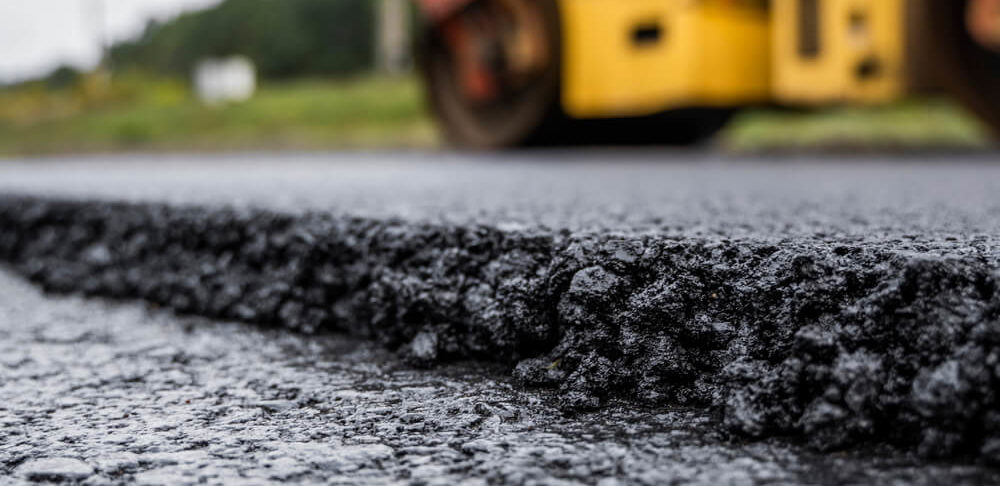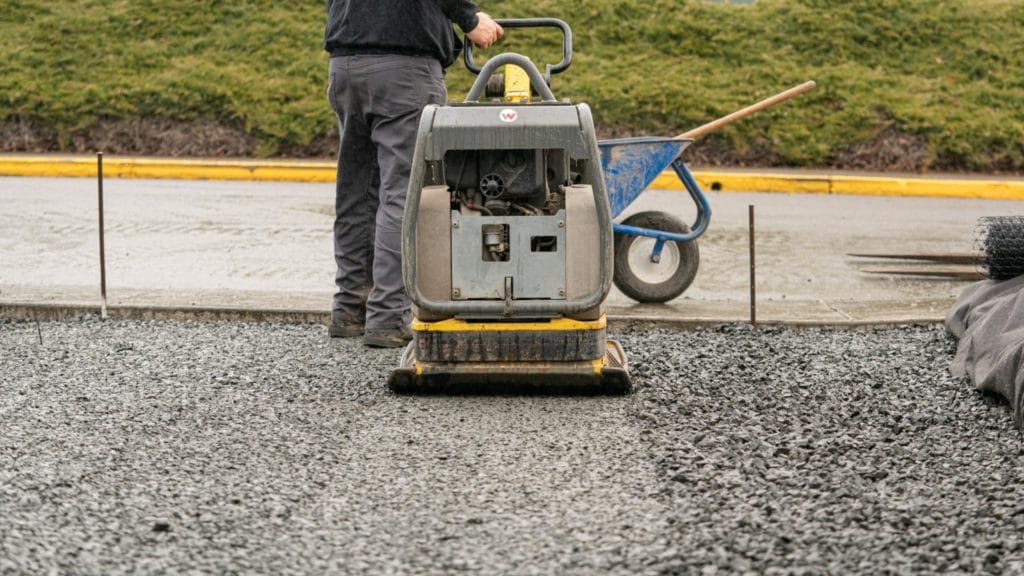The first aspect of driveway construction that must be considered is the base material selection. The base is the very beginning of the entire driveway construction process. Hence, it must be strong enough to provide stability and support. If there is not a proper base, the asphalt surface can quickly collapse, giving way to potholes, cracks, and costly repairs. It is necessary, therefore, to learn about the different base materials and their advantages and disadvantages.
Why Gravel as the Base Material for Asphalt Driveway is the Best Choice

Gravel is the first option for installing asphalt driveways because it is very economical, it is the least expensive material, and it is easy to obtain. Because of this, it’s a good option for homeowners who have limited budgets as well. Gravel also has terrific drainage characteristics. Due to its permeability, water can effuse through it, keeping the asphalt surface free of moisture that would otherwise cause fissures or damage. Furthermore, gravel is easy to install and keep in place. It can be spread evenly over the allotted area and then compacted using a roller or a compaction machine, which finally results in a solid and even foundation for the asphalt.
Cons of Asphalt Driveways that are Made with the Use of Sand as a Base Material
Attempting to use sand as a base for an asphalt driveway might appear to be a cheap alternative due to its availability and affordability, but its disadvantages make it an impractical choice. The sand causes one of the most significant drawbacks: inadequate drainage. In contrast to gravel, sand doesn’t permit water to seep through as quickly, so it is possible to have puddles on the driveway after rain or after snow has melted. It is a slow process, but water can do the worst over time, resulting in cracks and potholes. Additionally, sand is likely to shift and settle, causing the base to undulate and warp. Re-leveling periodically may be necessary to have a perfectly flat driveway surface.
Advantages of Using Crushed Stone in the Base Materials of Asphalt Driveways
Crushed stone is considered by many to be the best material for building a base for an asphalt driveway. One of its advantages is that it has good drainage ability. The crushed stone allows water to flow straight through the base, eventually preventing water build-up and possible damage to the asphalt surface. Furthermore, crushed stone is a solid and durable material. Its capacity to handle heavy loads and inclement weather without damage makes it longer lasting, resulting in a solid, trustworthy driveway for years. Crushed stone is compacted, giving a firm foundation for the asphalt. This process doesn’t allow shifting and settling and results in a flat and level surface.
Drawbacks of Using Recycled Asphalt as a Base Material for Asphalt Driveways
Although recycled asphalt may seem to be the greenest alternative for the base material of our asphalt driveway, it also has certain disadvantages. One major problem is the need for more drainage systems. Recycled asphalt may be better than other materials for draining water, which might lead to water pooling on the surface and, thus, damage to the asphalt. However, recycled asphalt may cost more than other base material choices. The cost of sorting and crushing the recycled asphalt can be massive, making it a less cost-effective option for homeowners with a “lean” budget. In addition, the quality of recycled asphalt is not always consistent due to the variable origin. It is crucial to ensure that the recycled asphalt used is of good quality to prevent any problems with the driveway’s stability and life span.

In the final analysis, a suitable base material for an asphalt driveway must be chosen to achieve its full potential. Gravel is relatively economical, provides good drainage, and is simple to install and maintain. Conversely, sand may need more drainage and may need to be leveled more often due to displacement and movement. The aggregate that has the largest drainage capacity is crushed stone, which is durable and compact. Keep in mind recycled asphalt could have inadequate drainage, can be more expensive, and the quality of this material may fluctuate. In summation, the ideal driveway base material for asphalt is determined by the specific requirements and budget of the property owner. It is suggested that you seek a consultant for the specific needs of the project prior to the final decision-making process.

